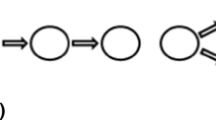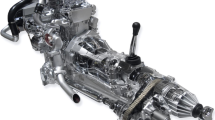Abstract
This study models a shop mix problem in a large-scale shopping center, aiming at realizing Pareto optimization of consumer preference. Our study defines a consumer preference order to respective shops as a two-level hierarchy obtained by computation from the “repeat rate” in reference data from actual POS. The combinatorial problem that preference order should be Pareto-improved is modeled and solved with a genetic algorithm. Results show that positively preferred shops do not coincide with the shops with a high average repeat rate. Results show that our method using a repeat rate is a good indicator for tenant replacement planning.
Access this chapter
Tax calculation will be finalised at checkout
Purchases are for personal use only
Similar content being viewed by others
References
Ishigaki T, Takenaka T, Motomura Y (2010) Category mining by heterogeneous data fusion using PdLSI model in a retail service. In: IEEE international conference on data mining, pp 857–862
Hofmann T (2001) Unsupervised learning by probabilistic latent semantic analysis. Mach Learn 42:177–196
Takenaka T et al (2013) Modeling customer behaviors in a shopping mall; tenant variety and customer types. In: Proceedings of 1st international conference on serviceology (ICServ2013) (to appear)
Holland J (1975) Adaptation in Natural and Artificial Systems. The University of Michigan Press, Ann Arbor
Author information
Authors and Affiliations
Corresponding author
Editor information
Editors and Affiliations
Rights and permissions
Copyright information
© 2014 Springer Japan
About this paper
Cite this paper
Kodama, K., Nishino, N., Takenaka, T., Koshiba, H. (2014). Modeling Shop Mix Problems as Pareto Optimization Considering Consumer Preference. In: Mochimaru, M., Ueda, K., Takenaka, T. (eds) Serviceology for Services. ICServ 2013. Springer, Tokyo. https://doi.org/10.1007/978-4-431-54816-4_6
Download citation
DOI: https://doi.org/10.1007/978-4-431-54816-4_6
Published:
Publisher Name: Springer, Tokyo
Print ISBN: 978-4-431-54815-7
Online ISBN: 978-4-431-54816-4
eBook Packages: EngineeringEngineering (R0)




